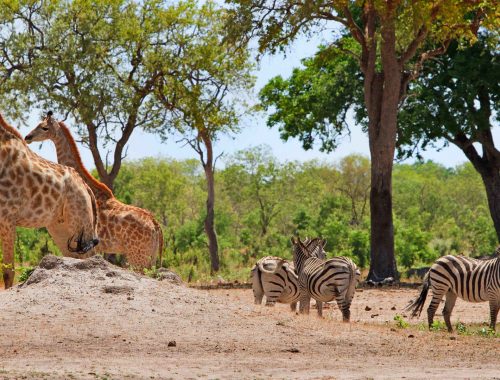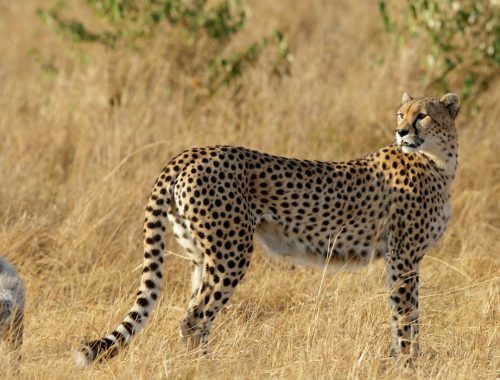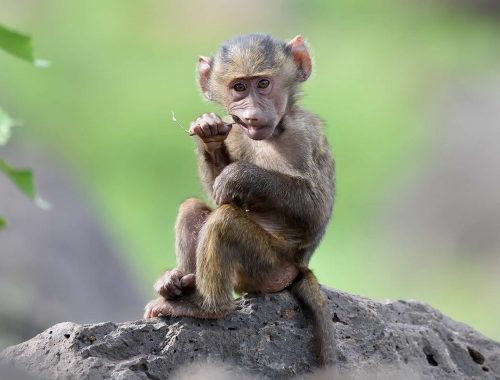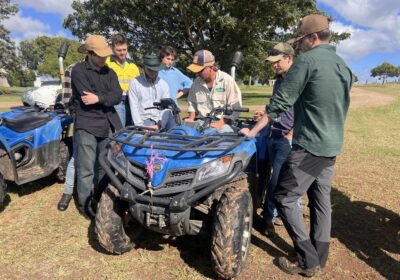Immerse yourself in the life of a vet on a Big 5 game reserve, shadowing a veterinarian and other wildlife specialists in their day to day activities. This African veterinary experience is fantastic for those looking to learn more about living and working on a game reserve in a veterinary capacity. The game reserve is home to hundreds of species of animals, including the iconic Big 5, which makes it a perfect place to improve your knowledge and see some incredible creatures.
Duration: 2 – 4 weeks
Dates: Click here for availability calendar
Arrival day: Monday
Return day: Saturday or Sunday
Eligibility: General level of fitness required
Age: 17+
Share with friends...
Highlights
- From game counts to game captures, from health checks to autopsies – there is never a dull day on the reserve!
- Learning to use a dart gun – not a standard requirement in most veterinary experience placements!
- Daily work with and around exotic animals – from lions to elephants, from antelope to zebra
- Taking game drives morning, noon and night to observe different animal behaviours and activities
- Doing the rounds and getting hands-on with a variety of animals at the on-site rehabilitation centre
- Add a conservation career course to support and apply for jobs after your trip
Experience the life of a vet in Africa and work with some of the continent’s most renowned mammals on a lush Big 5 game reserve. Work closely with the part-time reserve vet and wildlife experts as they work to ensure the health and well-being of the animals in their care. If you are looking to gain veterinary experience or put your skills into practice, this veterinary experience is a fantastic way to acquire a highly practical knowledge base.
The reserve comprises three main sections:
- The game reserve – where the wildlife lives
- The rehabilitation area – where sick, injured or disabled animals are cared for
- The domestic animals centre – where domestic and farm animals suffering from disease or illness are treated
There are two main components to this veterinary volunteering programme – the direct veterinary work experience and the indirect veterinary volunteer work.
The tasks at hand all depend on the specific cases at the time, however you should be able to work on a diverse variety of cases. Examples of direct veterinary tasks are:
- Blood tests
- Practical health checks
- Checking for parasites, diseases and injuries
- Assisting with minor operations
- Application of antibiotics, boosters and vitamin supplements
- Monitoring behaviour and well-being of animals in the reserve and in rehabilitation
- Basic dart gun training and possible darting of animals in the reserve
- Animal autopsies
- GPS of lion kills found
- Lectures and theoretical practice
In addition to the direct veterinary tasks, participants will also immerse themselves in the greater day to day routine of conservation and wildlife management on the game reserve. Participants work alongside the Big 5 participants in a variety of other reserve projects, which can include:
- game tracking, counts, captures and monitoring
- fence patrols
- game drives
- removal of alien vegetation in and around the reserve
- planting of natural species
- school feeding schemes
It is important to remember that the reserve is a dynamic and changing environment, and as such there are not always animals in need of direct veterinary intervention. For this reason, the vet comes to the reserve 2 – 3 days each week. For the rest of the week you will be working with game rangers, conservationists, the veterinary assistant and biologists.
Are you looking for paid work in the conservation sector after volunteering or interning? Oyster have teamed up with our friends at Conservation Careers who support people to find paid work in conservation following study or a career change. You can add their fantastic and flexible course to your volunteering trip with Oyster. Your Oyster experience will help add interest to your conservation resume as an eye catching addition to your job applications in future!
- On-site accommodation in shared single-sex dormitories
- Single-sex toilets and showers
- Lockers provided for your belongings
- Access to swimming pools, tennis courts and gardens throughout your stay
- Basic dormitory accommodation provided in Port Elizabeth for participants wishing to explore on the weekend (no extra charge)
- Food is included throughout your stay at the reserve
- Three meals per day prepared for you by local cooks
- Breakfasts include cereals, bread, jams, tea, coffee and sometimes cooked options
- Lunches and dinners are buffet style and comprise of mainly western, African and Asian food
- If you choose to leave the reserve at the weekend, you will need to provide your own food
- Most dietary requirements can be catered for
- Your programme will keep you busy at the reserve from Monday to Friday, with weekends free for study, relaxation and exploring
- At the weekend many participants choose to head in to Port Elizabeth to enjoy the sea, surf and sand, as well as to use it as a base from which to explore the area
- Alternatively, you are more than welcome to remain at the reserve to enjoy the fantastic facilities there and simply relax
- We can arrange a week-long Garden Route tour after your time on the project.
- Follow the link to find out more about the Garden Route Tour.
Travel arrangements
Airport: Port Elizabeth (PLZ)
Arrival day: Monday before 17:00. You will be collected from the airport and transferred to the reserve
Departure day: Saturday after 12:00 or Sunday at any time
Supporting You

Our team of coordinators on the reserve will be your support network whilst you are on this project. Get to know the vet and game rangers as they teach you their craft and get you involved in assisting them on the project. The full-time team who work in the offices to coordinate your project are also there as a helping hand and can offer great advice on things to do on your weekends.
Included
- Access to your own personal ‘My Oyster’ account – our online portal where you can find out much more about the program and manage your booking
- Dedicated contact time with an experienced destination manager to discuss the project, answer any of your questions and for us to find out more about you
- Help and advice from our UK office before arrival and whilst you are away
- Pre-departure information covering medical, safety and project advice
- Gold level, 24/7 Pharos crisis management and incident support cover
- Financial protection: ATOL (if we book your flights).
- Thorough orientation on arrival
- In-country support
- Accommodation (see the ‘accommodation’ section above for details)
- Advice on visa requirements
- Oyster plants a tree in Africa with TreeAid to help reduce the impact of global carbon emissions
- Airport collection
- WiFi
- Food full board at the reserve
- Linen
- Weekly return transport to and accommodation in Port Elizabeth
- Return transfer to Port Elizabeth at the end of your stay
- Oyster Worldwide volunteer t-shirt
- Oyster luggage tag
On your return:
- Welcome home pack
- Certificate of Recognition (on request)
- References (on request)
Not Included
- Flights – as an ATOL bonded company, Oyster can book flights for you
- You need a valid passport that meets the requirements of the country you will be travelling to
- Insurance (covering your time with Oyster and any planned independent travel)
- Any costs associated with changing your return flight date if you need to
- Independent travel costs
- Home country travel costs
- Spending money for additional trips, food and entertainment
- Food when not at the reserve
FAQ's
- The simple answer is no, however it is important to note that the level of knowledge would also determine the extent of the work possible
- It is important that everyone who takes part in this programme has an active interest in veterinary medicine
- This project can be done as summer work experience for improving university applications
- It is ideal for those who are taking a gap year before going to study veterinary medicine at university, who are looking to get some veterinary experience during holidays or who are changing career paths to go into veterinary medicine
- This is a great opportunity for anyone looking for some practical and theoretical veterinary experience. Participants should also be interested in gaining an insight into animal care, animal management and conservation
Find out why previous vet participant Liz loved her time on the veterinary experience project.
The typical day starts at around 9.30am and comes to a close at around 16:30 / 17:00. A typical day might look like:
08.30 – 09.30 Breakfast
10am – 1pm Morning tasks
13.00 – 14.00 Lunch
14.00 – 16.00 Afternoon tasks
18.00 – 19.00 Dinner
Whilst late-availability is possible, we would advise booking as soon as you can to guarantee your ideal dates. Our projects are very popular and spaces can fill up several months in advance, especially for the months of June to September.
We are an approved activity provider for the Duke of Edinburgh’s Award. You are able to put the time that you spend volunteering abroad on this project towards achieving your Gold Duke of Edinburgh’s Award. We are happy to sign off your completion of this programme to show that you have achieved the Residential section of the Gold Award.
There is no contact with animals living wild in the reserve unless veterinary intervention is required. Participants will act under the careful guidance of the vet and rangers when out in the reserve.
There may be the opportunity to work hands-on with some animals in the rehabilitation centre.
It is important to remember that all tasks are demand-driven.
Oyster assesses projects carefully to ensure that they offer high standards of animal welfare and environmental practice. We also check that volunteers understand key points of good practice before working with animals. To find out more, see our animal welfare policy.
The reserve is situated an hour from Port Elizabeth and gets moderately hot summers, and mild winters. It is one of the richest rainfall areas in South Africa. Most of the rains occur in the winter months, brought on by the humid sea-winds from the Indian ocean. The area is perennially green, making it a beautiful region to visit.
- Spring: late August to October.
- Summer: November to March, with December to February seeing mid-summer daily temperatures of about 24-30ºC.**
- Autumn: April and May, with average daytime temperatures in the low 20s.
- Winter: June – August, where the days can still be warm (up to 20ºC), but expect chilly nights.
**We have noticed in recent years a dramatic increase in temperatures in December and January. Temperatures have been rising to 40 – 45 degrees celsius during the day time. This heat may result in project activities having to be adapted for the health and safety of participants and animals.
You will know your spending habits the best, however a recommendation would be to budget for £50 per week for drinks, meals when in Port Elizabeth, laundry and treats. If you plan to travel further afield and do trips at the weekend, you should budget separately for any outings that you wish to do.
There is easy access to cash machines in Port Elizabeth so you don’t need to take all of your cash for you. Cards can be used everywhere.
No visa is necessary for under 90 days from UK and most western European countries. You will receive a tourist stamp upon arrival allowing you stay in the country for free for up to 90 days.
You need to make sure your passport is valid for a minimum of 30 days after you leave South Africa.
Most of our volunteers are independent travellers and you will become part of a group of people from around the world here. It is fine to travel with friends or as part of a small group too however- more the merrier!
You should visit your doctor or travel nurse to find out what vaccinations you will need. Your routine vaccinations will need to be up to date; hepatitis A and Typhoid are likely. You should follow your doctor’s advice.
Please check below for where the closest hospital to the project is – your doctor may ask to know this so that they can provide information on rabies.
For any more information, including entry requirements related to Covid-19, please see the Fit for Travel website or the UK government’s travel advice page for South Africa.
There is good access to pharmacies, doctors surgeries, first aid clinics and hospitals in and around Port Elizabeth. The main hospital is a 60 minute drive away and there is 24/7 access to vehicles.
Safety is the main priority here as you will be living in a reserve full of wildlife. The accommodation is in a large and fully enclosed area away from the main reserve. Staff live onsite and there is 24/7 access to help and assistance. When working out on the reserve you will always be accompanied by a member of staff, whether that be a game ranger or an other expert in the field. You will receive a health and safety briefing on each different activity that you undertake to ensure that you understand it fully.
Port Elizabeth is known as the “Friendly City” (but also the Windy City!). It is at the far end of the Garden Route linking it to Cape Town. This makes it very much on the tourist trails and you will not feel out of place here! The city is very modern with large shopping malls, a beautiful promenade and great free time activities. During your weekends you are free to go to Port Elizabeth, where safe accommodation is located in the leafy suburbs of the city. Crime in South Africa is mainly concentrated in the larger townships of the country however you are advised not to walk alone at night time and to take a taxi back to the accommodation if you have been out and about at night time. The streets are less well lit in South Africa than you might be used to at home.
Port Elizabeth is about one hour from the reserve. There are weekly transfers into town on a Saturday morning to return on Sunday evening.
There is wifi access available but this can be intermittent. You will need to take a device to be able to connect to it.
Please bear in mind that you are in Africa, and signal and speed are unlikely to be as reliable as you might be used to back at home.
There is good phone reception here.
South Africa is 2 hours ahead of GMT (GMT +2)
In South Africa, a mixture of European plugs and South African plugs are used.
- Weekend trips are arranged to Port Elizabeth and other local attractions
- If you choose to go to Port Elizabeth for the weekend your accommodation and transport are included, but not food
- If you choose to go further afield this is possible but covered at your own expense
- Participants are welcome to remain at the reserve and enjoy the tennis courts, swimming pools and other leisure facilities
- Port Elizabeth is a vibrant city, with great water sports, shopping and leisure facilities. There are plenty of bars and restaurants where participants often enjoy their down time at the weekends
- Many of our participants have gone to Addo elephant park, have done bungee jumping and surfing, or simply enjoyed the glorious beaches
Your project is Monday – Friday, with evenings and weekends generally free.
If you are keen to do some organised travel after your project, we are pleased to be able to offer you a Garden Route tour. This lasts for 6 days and takes you from Port Elizabeth to Cape Town with some exciting stops in between. The trip only leaves on selected dates each year, and as such you will need to coincide the end of your programme with the beginning of the tour. To find out more about this, and see the upcoming dates, visit our Garden Route tour page.
Supervision will be fairly intensive during the first few days, when you will receive a thorough induction and work-related training. Once you are comfortable with things, you might not always have a supervisor working alongside you, but there will always be staff and other volunteers around to help, and you will always be accompanied for any high risk activities.
Staff at Oyster’s head office and in-country will be responsible for your safety and welfare while you are at the project. This will start from the moment you are picked up from the airport until the time you are dropped back to Port Elizabeth. Before and after these times, you will be outside Oyster’s responsibility and should make sure that you act safely and avoid risk. This is also true if you choose to leave the project during your time off. We will give you plenty of guidance and advice about this.
Oyster has personally hand-picked some of the best volunteering projects out there. With so much amazing choice, it can be hard to make a decision. Our Animal Welfare Destination Manager, Anne, has written a guide to help you to choose the best animal volunteering project for you.
Project Reviews
“I had a great time and an overall amazing trip. The people and staff have been amazing. The vets have also been extremely informative and friendly. This trip has definitely been eye-opening. Overall I had a positive experience at the reserve itself and all time with the vet’s was very positives.” Charlie, 2 weeks July 2025 “My four weeks...
Would you like to chat to Kate, who manages this programme? Just call +44 (0) 1892 771 973 or email: – [email protected].







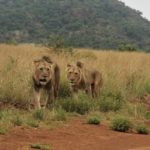 “I had a great time and an overall amazing trip. The people and staff have been amazing. The vets have also been extremely informative and friendly. This trip has definitely been eye-opening. Overall I had a positive experience at the reserve itself and all time with the vet’s was very positives.”
“I had a great time and an overall amazing trip. The people and staff have been amazing. The vets have also been extremely informative and friendly. This trip has definitely been eye-opening. Overall I had a positive experience at the reserve itself and all time with the vet’s was very positives.”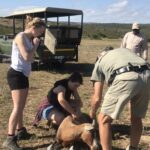 “My four weeks at the reserve were amazing! I have been really happy and learned a lot, and I met so many nice people:) !”
“My four weeks at the reserve were amazing! I have been really happy and learned a lot, and I met so many nice people:) !”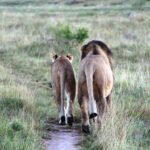 “I am really enjoying it here and I’m learning very much. All the people are very nice and it’s easy to fall into a routine here. I am actually enjoying it so much, that I’m thinking about extending the trip for another week!”
“I am really enjoying it here and I’m learning very much. All the people are very nice and it’s easy to fall into a routine here. I am actually enjoying it so much, that I’m thinking about extending the trip for another week!”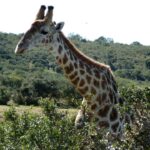 “I had such an amazing time! Everybody I met was great, both volunteers and staff. The volunteering work was all quite fun while feeling productive, and there plenty free time throughout the day so it never felt too busy. The vet work experience was incredible, learning so much about the work he does in SA while doing hands-on work was fascinating ”
“I had such an amazing time! Everybody I met was great, both volunteers and staff. The volunteering work was all quite fun while feeling productive, and there plenty free time throughout the day so it never felt too busy. The vet work experience was incredible, learning so much about the work he does in SA while doing hands-on work was fascinating ”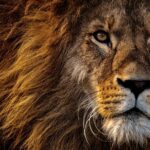 ” I’m really fine! The people here, both the volunteers and the staff, are so kind and nice all the time. The activities are also fun and I could already spend time with the vet, what is absolutely amazing! Very happy to be here, really enjoying it. I could always count on the service and the help of Anne or Georgie. The information to the project were more than detailed and helped me a lot.”
” I’m really fine! The people here, both the volunteers and the staff, are so kind and nice all the time. The activities are also fun and I could already spend time with the vet, what is absolutely amazing! Very happy to be here, really enjoying it. I could always count on the service and the help of Anne or Georgie. The information to the project were more than detailed and helped me a lot.”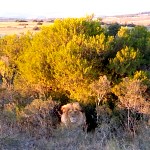 “I’ve had such a lovely time in South Africa. I met loads of new people and just had a great experience. Thank you so much for all your help, it’s been well appreciated.”
“I’ve had such a lovely time in South Africa. I met loads of new people and just had a great experience. Thank you so much for all your help, it’s been well appreciated.”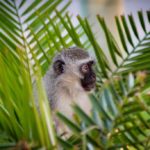 “Listen to everything the rangers say and write down everything you do because you will learn a lot. Thank you so much for such a great experience that I will never forget!! ”
“Listen to everything the rangers say and write down everything you do because you will learn a lot. Thank you so much for such a great experience that I will never forget!! ”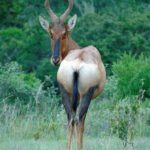 “I enjoyed working alongside game rangers and going on lots of game drives. Having lots of opportunities to do different activities in different areas
“I enjoyed working alongside game rangers and going on lots of game drives. Having lots of opportunities to do different activities in different areas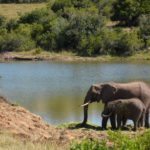 “I had an amazing experience, the knowledge and experience I gained from being with the vet was great. I enjoyed the voluntary work which there was a lot of..”
“I had an amazing experience, the knowledge and experience I gained from being with the vet was great. I enjoyed the voluntary work which there was a lot of..”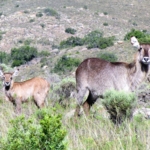 “The interaction with the animals was fantastic. The vet was extremely knowledgeable and the project has opened my eyes to the many different roles a vet can take.I’ve had lots of contact with Anne who was extremely helpful and answered all of my questions within a few hours of me sending them, each time!This was extremely useful in planning what to bring and made my first solo trip much less daunting.”
“The interaction with the animals was fantastic. The vet was extremely knowledgeable and the project has opened my eyes to the many different roles a vet can take.I’ve had lots of contact with Anne who was extremely helpful and answered all of my questions within a few hours of me sending them, each time!This was extremely useful in planning what to bring and made my first solo trip much less daunting.”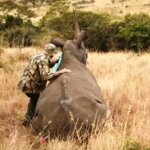 “All the logistics of the program were organized so well I did not have to think about any of it and could instead focus on helping out, having fun, and making friends. I absolutely loved the veterinary experience I gained through this program and the friends from all over the world that I made. Be open to anything and everything over the course of the project and talk to as many people as you can. Everyone has such a unique life experience that you can learn a lot about others and yourself just by striking up conversations.”
“All the logistics of the program were organized so well I did not have to think about any of it and could instead focus on helping out, having fun, and making friends. I absolutely loved the veterinary experience I gained through this program and the friends from all over the world that I made. Be open to anything and everything over the course of the project and talk to as many people as you can. Everyone has such a unique life experience that you can learn a lot about others and yourself just by striking up conversations.”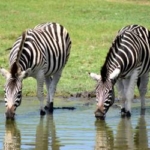
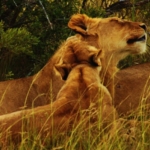
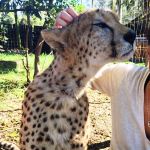 “Oyster is a great gap year agency, they offer a wide range of great programmes. I must admit it was hard for me to choose between them! I would definitely recommend Oyster because the very helpful staff made the whole booking procedure extremely smooth. A month wasn’t long enough in South Africa, it will exceed all your expectations! :)”
“Oyster is a great gap year agency, they offer a wide range of great programmes. I must admit it was hard for me to choose between them! I would definitely recommend Oyster because the very helpful staff made the whole booking procedure extremely smooth. A month wasn’t long enough in South Africa, it will exceed all your expectations! :)”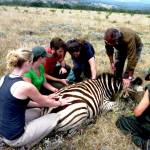 “Thank you so much for all the help you have given me in preparing for this trip! I am very excited (and both nervous in equal measures) but I am sure that I will have an amazing experience. I cannot thank you enough for all you have done.”
“Thank you so much for all the help you have given me in preparing for this trip! I am very excited (and both nervous in equal measures) but I am sure that I will have an amazing experience. I cannot thank you enough for all you have done.”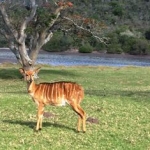 “I’m doing great and having the best time here in South Africa. I’ve also met amazing people. The animals here are beautiful and I managed to witness and assist the vet in darting an impala and a black wildebeest which was an incredible sight.”
“I’m doing great and having the best time here in South Africa. I’ve also met amazing people. The animals here are beautiful and I managed to witness and assist the vet in darting an impala and a black wildebeest which was an incredible sight.”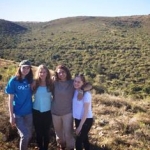 “I’m doing good thank you! I am excited yet sad all at the same time to be home. The trip was absolutely amazing!!! Definitely the best four weeks I’ve ever done and I’ve already decided I want to travel again next year. I’ve bettered my knowledge on so many aspects and got a very hands on experience. The staff there make the experience! Always so happy to help and let you get involved.”
“I’m doing good thank you! I am excited yet sad all at the same time to be home. The trip was absolutely amazing!!! Definitely the best four weeks I’ve ever done and I’ve already decided I want to travel again next year. I’ve bettered my knowledge on so many aspects and got a very hands on experience. The staff there make the experience! Always so happy to help and let you get involved.”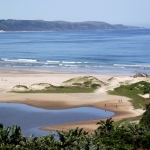 “The highlights were being a part of the welfare of animals and being able to manage and even improve their lives. The weekends were fun too!”
“The highlights were being a part of the welfare of animals and being able to manage and even improve their lives. The weekends were fun too!”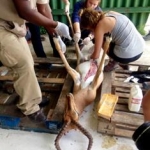 “I really enjoyed being part of the vet group. We were able to interact with the animals and I really enjoyed the lectures; they weren’t too full on and it was just nice to learn new things. I just want to say thank you so much for all your help – you’ve been so helpful and made me feel so much more relaxed about the planning and organising of the trip. I would definitely recommend Oyster to others who want to do something similar, as I really can’t fault anything, and I know the other Oyster participants said the same!”
“I really enjoyed being part of the vet group. We were able to interact with the animals and I really enjoyed the lectures; they weren’t too full on and it was just nice to learn new things. I just want to say thank you so much for all your help – you’ve been so helpful and made me feel so much more relaxed about the planning and organising of the trip. I would definitely recommend Oyster to others who want to do something similar, as I really can’t fault anything, and I know the other Oyster participants said the same!”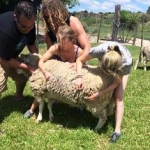 “I’ve had so many amazing experiences and have met the loveliest people. The vet course was really interesting, we had quite a few interesting lectures and also helped to drain an abscess on an elephant! Thanks so much.”
“I’ve had so many amazing experiences and have met the loveliest people. The vet course was really interesting, we had quite a few interesting lectures and also helped to drain an abscess on an elephant! Thanks so much.”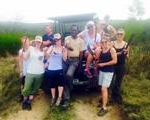 “I’ve had the most amazing two months doing my veterinary experience. I met some incredible people from all over the world that now feel more like family and I’m going to miss a hell of a lot. Some of the things I’ve experienced will never be topped.”
“I’ve had the most amazing two months doing my veterinary experience. I met some incredible people from all over the world that now feel more like family and I’m going to miss a hell of a lot. Some of the things I’ve experienced will never be topped.”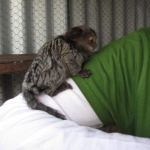 “It is incredible experience and an opportunity to see some of the amazing Big 5 animals of Africa. It is definitely worth it. It is a chance to escape to a beautiful location and have a whole new adventure. Even if you have worries or doubts, when you get to the reserve it is all worth it. It is completely out of this world, so just put yourself out there and have an incredible time.”
“It is incredible experience and an opportunity to see some of the amazing Big 5 animals of Africa. It is definitely worth it. It is a chance to escape to a beautiful location and have a whole new adventure. Even if you have worries or doubts, when you get to the reserve it is all worth it. It is completely out of this world, so just put yourself out there and have an incredible time.”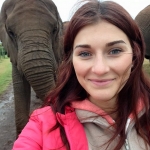 “A great experience for veterinary people to work with wild animals they may never see in England!”
“A great experience for veterinary people to work with wild animals they may never see in England!”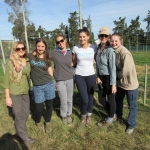 “This was amazing – one of the best experiences of my life so far! I am definitely missing it – so much so that I am currently talking to the people who were on the project with me about meeting up and how they are settling in, and when we can do something like that again! I still can’t believe that I have actually been!”
“This was amazing – one of the best experiences of my life so far! I am definitely missing it – so much so that I am currently talking to the people who were on the project with me about meeting up and how they are settling in, and when we can do something like that again! I still can’t believe that I have actually been!”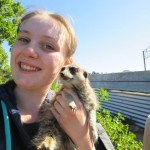 “I had an absolutely fantastic time over the past 4 weeks and have met some amazing people. It was such a good experience. The vet programme was really good and was very hands on. Also the staff at the reserve were really friendly and always willing to help.”
“I had an absolutely fantastic time over the past 4 weeks and have met some amazing people. It was such a good experience. The vet programme was really good and was very hands on. Also the staff at the reserve were really friendly and always willing to help.”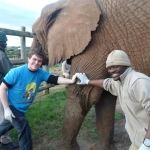 “South Africa was fantastic and I literally can’t praise the staff at the reserve enough, especially the vet, who encouraged my desire to follow him into the profession! I would definitely go again if I could, and I wish I could have done so much more. Getting to work with incredible animals, in particular the elephants, was nothing short of a privilege. Thank you for arranging the best moment of my life so far!!!”
“South Africa was fantastic and I literally can’t praise the staff at the reserve enough, especially the vet, who encouraged my desire to follow him into the profession! I would definitely go again if I could, and I wish I could have done so much more. Getting to work with incredible animals, in particular the elephants, was nothing short of a privilege. Thank you for arranging the best moment of my life so far!!!”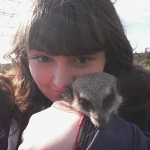 “I am definitely enjoying it! The first few days took some adjusting to, as it rained nonstop and was freezing cold, but it has picked up and was definite sunbathing weather earlier! I’ve done and seen so much!”
“I am definitely enjoying it! The first few days took some adjusting to, as it rained nonstop and was freezing cold, but it has picked up and was definite sunbathing weather earlier! I’ve done and seen so much!”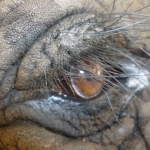 “The vet is fantastic, very knowledgeable and willing to teach.”
“The vet is fantastic, very knowledgeable and willing to teach.”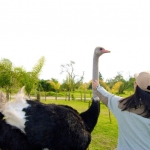 “I’m doing well! Yesterday we did a game capture and actually caught a blesbok despite everyone doubting that we would actually catch anything!”
“I’m doing well! Yesterday we did a game capture and actually caught a blesbok despite everyone doubting that we would actually catch anything!”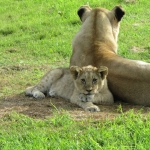 “I am having an amazing time and have learned so much more than anticipated. I have had more hands on experiences than I ever could have imagined.”
“I am having an amazing time and have learned so much more than anticipated. I have had more hands on experiences than I ever could have imagined.”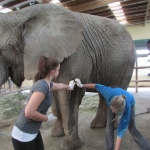 “I had an absolutely amazing time in South Africa! I really miss life there already, but am starting my new job as a vet care assistant now! I met some wonderful people from all over the world and made some incredible memories that I will never forget. Say yes to everything because you will regret it if not! Be prepared to be busy and work hard, but you have so much fun while doing it!”
“I had an absolutely amazing time in South Africa! I really miss life there already, but am starting my new job as a vet care assistant now! I met some wonderful people from all over the world and made some incredible memories that I will never forget. Say yes to everything because you will regret it if not! Be prepared to be busy and work hard, but you have so much fun while doing it!”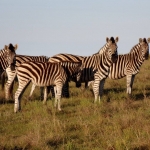 “This was a dream trip – absolutely magical to be working with wild animals.”
“This was a dream trip – absolutely magical to be working with wild animals.”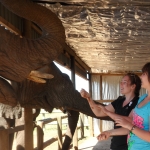 “My time in South Africa was outstanding! If it would have been in our power to stay longer, Sarah and I would definitely have done so! I was missing life with the animals as soon as I stepped on the plane home! It was all so wonderful; the rangers were amazing, the vet was also great, the accommodation was outstanding, living with all the other volunteers was memorable!”
“My time in South Africa was outstanding! If it would have been in our power to stay longer, Sarah and I would definitely have done so! I was missing life with the animals as soon as I stepped on the plane home! It was all so wonderful; the rangers were amazing, the vet was also great, the accommodation was outstanding, living with all the other volunteers was memorable!”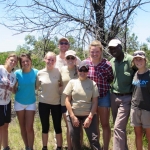 “My time here is absolutely amazing! I am having the time of my life! While I was there I actually found out I got accepted into veterinary studies at Uni, so I am so happy to be getting into that field at last! ! Without my experience in Africa I don’t think I would be going to study veterinary, so I am very grateful for the opportunity.”
“My time here is absolutely amazing! I am having the time of my life! While I was there I actually found out I got accepted into veterinary studies at Uni, so I am so happy to be getting into that field at last! ! Without my experience in Africa I don’t think I would be going to study veterinary, so I am very grateful for the opportunity.”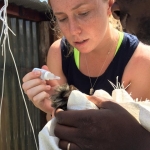
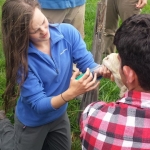 “After the most incredible 11 weeks in South Africa I am now home ready for Christmas. I’ve met the most amazing people, done things I could have never imagined and made memories that will last a lifetime.”
“After the most incredible 11 weeks in South Africa I am now home ready for Christmas. I’ve met the most amazing people, done things I could have never imagined and made memories that will last a lifetime.”